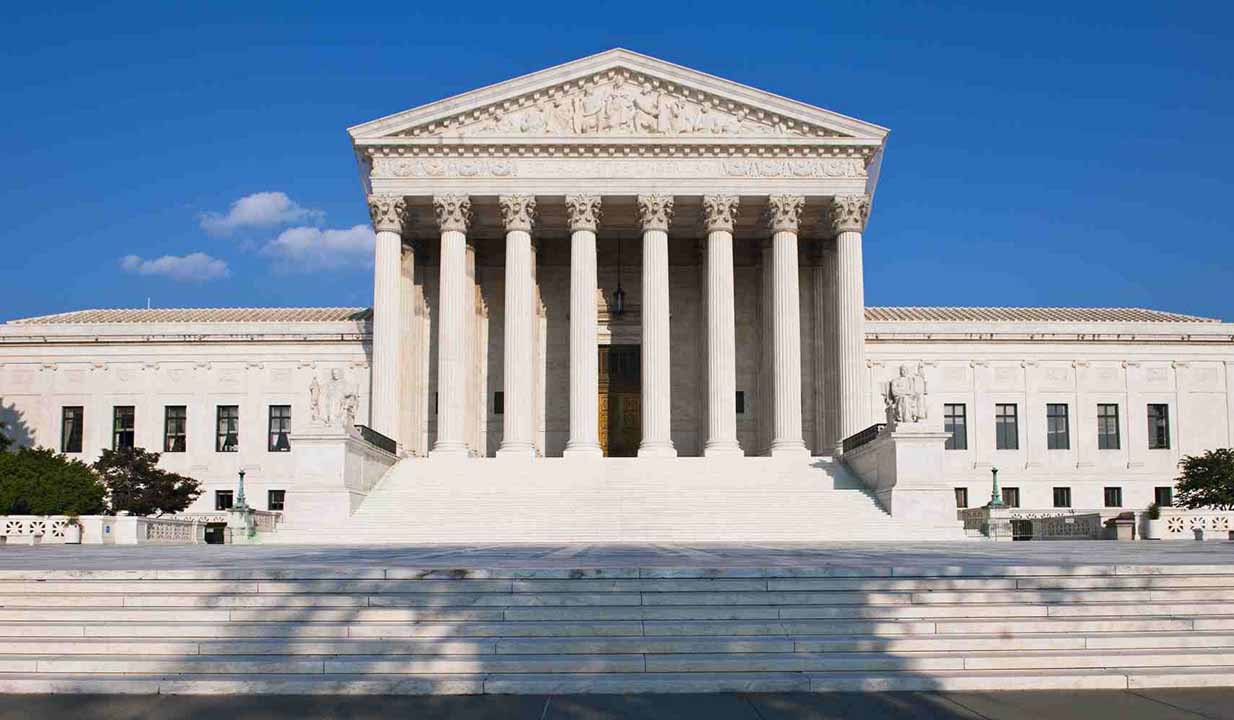

The next big challenge to the success of the Patient Protection and Affordable Care Act (ACA) is in the hands of the Supreme Court of the United States (SCOTUS). King vs. Burwell is a case involving four individuals—David King, Douglas Hurst, Brenda Levy and Rose Luck—who are suing to challenge the federal government’s offer of subsidies to them. The plaintiffs are all from Virginia, a state that did not set up its own exchange for health insurance enrollment under the ACA.
The plaintiffs object to a provision of the law that requires everyone who can afford insurance to obtain it or pay a tax penalty. If the federal subsidies in Virginia were cut off, the plaintiffs would no longer be required to buy coverage under the ACA, because the unsubsidized insurance premiums would no longer be considered affordable under other provisions of the law (insurance would cost more than eight percent of their annual income).
The language that provides the legal basis for the suit is somewhat obscurely buried in the Act, in Section 36B, the section that establishes and sets the amount for the refundable tax credit for premium assistance. Specifically, Section 36B(b)(2)(A) states (with emphasis added):
‘‘(A) the monthly premiums for such month for 1 or more qualified health plans offered in the individual market within a State which cover the taxpayer, the taxpayer’s spouse, or any dependent (as defined in section 152) of the taxpayer and which were enrolled in through an Exchange established by the State under 1311 of the Patient Protection and Affordable Care Act…”
It’s the bolded language that the plaintiffs argue indicates that only enrollments through a state-established health care insurance exchange (such as Colorado’s iteration, Connect for Health Colorado) are eligible for premium assistance. There is no other similar mention in the 906-page law. Since Virginia uses the federal exchange, the argument is that no federal subsidies are available.
The Court appears split on the issue: the four judges appointed by Democrat presidents will likely vote against plaintiffs and at least three, probably four judges appointed by Republican presidents will likely vote for plaintiffs. Swing votes in support could come from either (or both) Justice Kennedy and Chief Justice Roberts—or not. It is likely the decision will be announced in late June this year.
If SCOTUS finds in favor of the plaintiffs, the predicted outcomes are remarkable and will be broad. Twenty states use the federal exchange only; seven use the federal exchange but oversee health plan management; seven states partner with the federal government to run an exchange; and three states operate their own exchange but use the federal website. Some or all of these may be affected.
Depending on the source of the analysis, between 8.2 and 9.6 million Americans would lose insurance over the short term. Hospitals will see more bad debt as they return to providing uncompensated care, and the resulting cost-shifting, along with those healthy people who drop coverage, will lead to insurance premiums that are predicted to jump 45-47 percent next year.
These increases will predictably lead to additional people without health insurance. One analysis indicated that there would be 9,800 more preventable deaths per year, as more ill people would go without needed health care. Republican legislators, in control of both the House and Senate, are working on short-term funding plans to blunt these adverse effects, yet it’s a daunting task.
Long-term effects are harder to predict, but most analysts feel that without the subsidies, as well as the individual penalties, the ACA will unravel over a fairly short period of time, even in states that established their own exchange like Colorado. Medicaid expansion for states that took this action will still be in place, but the essential drivers of savings that allow funding for the coverage expansion and subsidized insurance purchase will be threatened. And, the benefits from the remarkably significant change in all national expenditures for health care in our country, reported by the Congressional Budget Office and the Centers for Medicare and Medicaid Services, will evaporate.
If the plaintiffs succeed, the best scenario is we return to the crisis of uninsurance we had in 2008-09. The more likely scenario is things will be even worse.